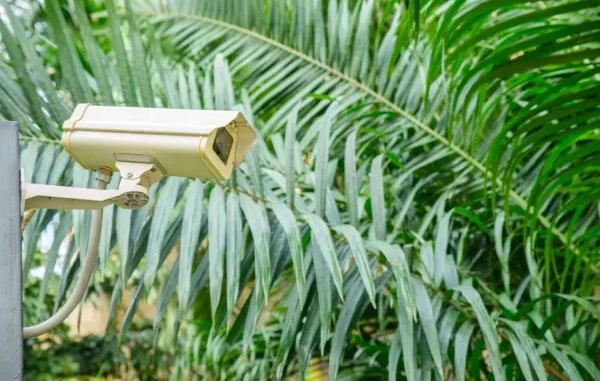

Security has evolved from a luxury into an essential part of everyday life. Whether you’re a homeowner trying to protect your family or a business owner safeguarding assets, CCTV (Closed-Circuit Television) systems have become an integral part of modern-day security. With rising crime rates, advancements in surveillance technology, and the affordability of high-definition cameras, more property owners are turning to CCTV to keep a watchful eye over their surroundings.
However, many people don’t realize that installing a CCTV system comes with legal responsibilities. Failing to understand the legal landscape from privacy laws to local regulations can lead to serious consequences, including fines, lawsuits, or forced removal of the equipment.
This guide breaks down the most important legal considerations when installing CCTV in residential or commercial spaces, ensuring that your security setup is both effective and compliant.
1. Understanding the Legal Framework
In the United States, no single federal law governs CCTV use. Instead, laws vary by state and are influenced by local ordinances, federal privacy laws, lease agreements, and, in some cases, building codes. Generally, the law balances the property owner’s right to protect their space with the public’s and individuals’ right to privacy.
You can usually record activity on your own residential property, especially the exterior. Businesses, especially those open to the public (like stores, restaurants, and offices), have more leeway, but there are still critical limits regarding where cameras can be placed. Lease agreements—both residential and commercial—may also restrict or require disclosure of camera installation, especially in shared spaces or multi-tenant properties.
The key legal rule: You can’t install cameras in areas where people have a “reasonable expectation of privacy.” This includes:
- Bathrooms
- Bedrooms (in some cases for multi-tenant properties)
- Locker rooms
- Changing areas
- Employee breakrooms (in some jurisdictions)
2. Notifying Others: Signage and Consent
While it might seem obvious, a big part of remaining compliant is letting others know they are being recorded. This is especially crucial for commercial properties.
- Residential: While you aren’t necessarily required to post signs, it’s considered a best practice, especially if your cameras record the sidewalk, neighbor’s yard, or public spaces. Transparency can reduce complaints or legal disputes.
- Commercial: Most states require that businesses post visible signage indicating that video surveillance is in use. Depending on state wiretapping laws, audio recording may require explicit consent from employees or customers.
Remember, video recording and audio recording are governed differently. Many states have two-party consent laws for audio, meaning both parties must agree to be recorded. Simply put: always be extra careful if your cameras include audio functionality.
3. Recording vs. Monitoring in Real-Time
There is also a legal difference between real-time monitoring footage and recording for storage and future review. Businesses often use real-time monitoring for live incident response. However, if you store footage, you may need to comply with additional regulations:
- Data retention laws: Some jurisdictions limit how long you can keep recorded footage (e.g., 30 – 90 days).
- Data security: If you store footage digitally, especially in the cloud, you are responsible for protecting it from unauthorized access.
If your business collects footage that could include employees or customers, it may be subject to data protection laws such as HIPAA (for medical offices), GLBA (for financial institutions), or state-specific laws like the California Consumer Privacy Act (CCPA).
4. Tenant and Employee Surveillance Rules
If you’re a landlord or employer, CCTV use must meet higher fairness, privacy, and disclosure standards.
- Landlords: You can install cameras in common areas of apartment complexes (e.g., hallways, parking lots, laundry rooms), but not in private spaces like inside units or balconies. Tenants should be informed, and it’s often required by lease agreements or local law.
- Employers: You must disclose the use of CCTV to your employees and ensure that it serves a legitimate business purpose (such as preventing theft, monitoring access points, or improving safety). Surveillance must not be used to intimidate or harass workers.
5. Neighbor and Public View Recording
Homeowners often wonder if recording public areas or neighboring properties is legal. Here’s the breakdown:
- Public areas (e.g., streets, sidewalks): Generally, you can record these spaces if your camera is positioned on your private property.
- Neighboring properties: You cannot intentionally record someone else’s private property, especially not areas like windows, patios, or backyards. Under some local laws, this can be considered harassment or stalking.
Motion detection zones or privacy masking can help ensure your cameras aren’t unintentionally invading others’ privacy.
6. Audio Surveillance and Wiretap Laws
As mentioned earlier, many states have wiretapping laws that make audio recording without consent illegal. For example:
- Florida, California, and Pennsylvania require two-party consent.
- New York and Texas require only one-party consent.
Check your state’s regulations before enabling audio features on your cameras. Violating wiretapping laws can result in criminal penalties, even if your intention was simply to enhance security.
7. Insurance and Liability Considerations
Security footage can help resolve disputes, catch criminals, and provide evidence in legal proceedings. However, improperly installed or illegally used CCTV can become a liability.
Example: If an employee or customer feels that a camera recorded them inappropriately, they can sue for invasion of privacy, even if no footage was misused.
Tip: Work with a professional CCTV installer who understands legal compliance. Proper setup can protect you from unnecessary legal exposure.
Additionally, installing CCTV may help lower your insurance premiums, but only if your system meets standards for camera placement, footage retention, and system reliability.
8. When in Doubt, Consult a Legal Professional
Because laws vary by state, city, and property type, the best course of action is to consult with an attorney or a security professional who’s familiar with your local legal landscape. They can help you ensure your system is both effective and compliant.
Conclusion: Choose the Right Partner for Legal, Compliant CCTV Solutions
The Importance of Working with a Knowledgeable Security Provider
Choosing the right CCTV system is more than cameras and cables; it’s about legal compliance, ethical usage, and long-term peace of mind. An experienced, professional installer can ensure your system is legally sound from the start, helping you avoid costly mistakes and penalties.
HD Cameras USA: Compliant, Professional, Trusted
HD Cameras USA is a top-rated security company trusted across Florida for its expertise in residential and commercial surveillance solutions. Their team understands the technical and legal aspects of CCTV installation, making them the ideal partner for property owners who want high-performance systems with full legal compliance. If you’re looking for expert cctv installation fort lauderdale, residents can trust HD Cameras USA, which offers reliable and professional solutions. For businesses needing top-tier security camera installation jacksonville fl, their experienced technicians ensure every system is tailored for optimal protection and compliance.
Florida-Wide Coverage and Advanced Security Services
With offices in Orlando, Miami, and Tampa, as well as satellite locations in Fort Lauderdale, Jacksonville, Apopka, Lakeland, Daytona, and West Palm Beach, HD Cameras USA serves clients across the state with tailored solutions. Their services include access control systems, thermal imaging cameras, 4K CCTV installation, license plate recognition systems, cloud-based monitoring, and more. If you’re looking for a security partner that stays ahead of the curve and keeps your system legally compliant, look no further than HD Cameras USA.






Leave a Reply